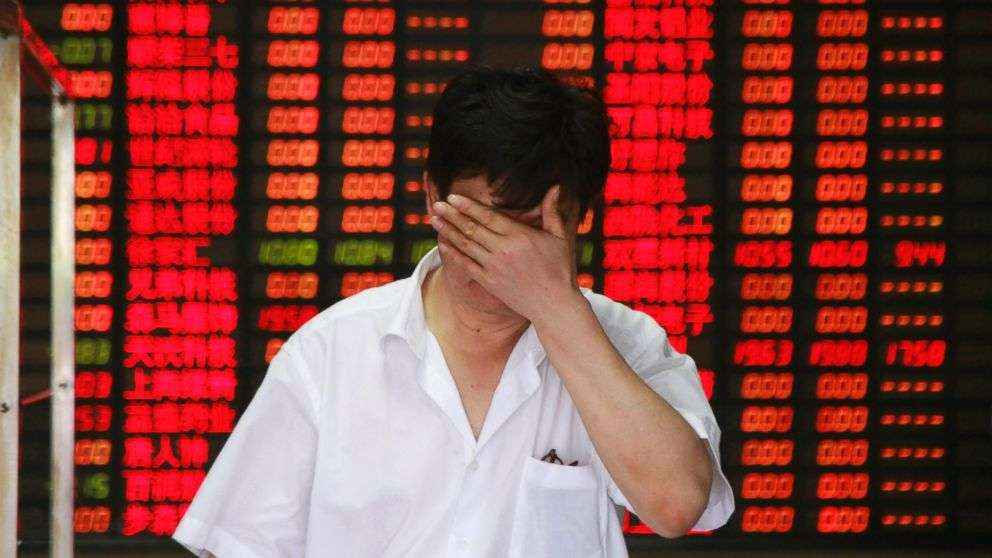THE ups and downs of China’s stockmarket have become plainly, painfully visible to the world. Less transparent, but perhaps more damaging in years to come, has been another kind of rollercoaster. The government has gone from the concerted wooing of international investors to doing just about everything in its power to keep them out. That of course is not China’s intent. Its goal is to stabilise share prices and, to that end, it still welcomes cash from abroad. But the cumulative result of its interventions in recent weeks has been to scare away investors.
China’s stockmarket has never been for the faint of heart. Big, inexplicable swings in share prices are bad enough. The regulatory labyrinth that foreigners have to navigate just to earn the privilege of joining the fray has long been even more forbidding. But over the past year it looked like China was finally getting serious about opening its stockmarket to the world.
A new trading link meant that, in theory, any foreigner with a brokerage account in Hong Kong could invest in mainland stocks. China also addressed a series of foreign investors’ long-standing complaints: it cleared up confusion about its capital-gains tax; made it easier to short individual stocks; and developed index futures, a vital hedging tool. Chinese officials met with institutions in New York, London and Frankfurt, encouraging them to apply for investment quotas. FTSE Group, which creates stock indices for funds to track, launched a transitional benchmark that, for the first time ever, included Chinese domestic shares. China’s stockmarket was clearly still immature, the evidence in its rapidly swelling bubble, but regulators seemed committed to building a healthier, more professional market.
The bursting of the bubble has, in dramatic fashion, undermined this progress. In the first days, the immaturity of China’s policymakers was on display for all to see. Panicked at the sell-off, they used central-bank funds to prop up share prices and ordered state-owned companies to buy back shares. However, it is the use of law as a cudgel, wielded with increasing force in recent days, that has been most alarming to investors.
On Monday state television aired a confession by Wang Xiaolu, a journalist from a top financial magazine, to having caused “panic and disorder”. His apparent misdeed was to have pointed out that the state’s intervention in the market was not working and to question whether it would come to an end. Police have also gone after executives with Citic Securities, the nation’s top brokerage, eliciting confessions for insider trading in near record time. Then there is the mysterious case of Li Yifei, the head of China for Man Group, a leading hedge fund. Bloomberg reported that she had been taken into custody, though subsequent reports said she had merely been summoned to a multi-day meeting with officials in an undisclosed location.
Investors face a growing slate of impositions. New rules cap the size of their open positions in index futures, a move that makes it harder to hedge against the market’s wild movements. Because investors holding more than 5% of individual stocks are effectively barred from selling, fund managers are wary of buying too much. At the same time, the government is forcing brokerages to put more of their own money into the market. A series of top securities companies announced on Tuesday that they would directly invest as much as 20% of their net assets in stocks, hoping to stabilise prices.
Sure enough, foreign interest in China’s stockmarket is waning. Fund managers who control quotas for institutional investors report that take-up has slowed to a crawl. Use of the trading link with Hong Kong had begun to rebound in late July after the big fall in share prices. But it has dwindled in the wake of the crackdowns. Just 156 billion yuan ($25 billion) out of a possible 300 billion yuan was invested in China at the end of August.
China has never really needed foreign investors in its stockmarket for their money. Their assets in the mainland only amount to about 1% of the value of all shares. But it does need their experience and expertise if it is ever to build a truly functional stockmarket. Highly volatile share prices and a deteriorating economy were already enough to keep many foreigners away. Now the threat of arrests, the elimination of hedging tools and cash-calls in aid of the state have all made the decision that much easier.









